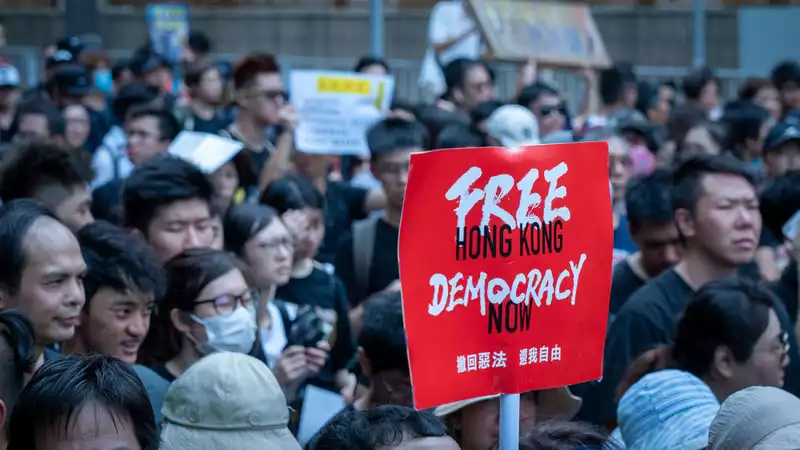Updated with comments from ExpressVPN
"Now that Beijing has more direct control over Hong Kong, a former British colony that is nominally self-governing, the two leading best VPN providers in North America are pulling their servers out of Hong Kong
"Effective immediately, Private Internet Access (PIA) is erasing and shutting down our VPN servers in Hong Kong to comply with China's new national security laws imposed on Hong Kong," US-based service Private Internet Access announced in a blog post yesterday (July 14)
Private Internet Access is not the only VPN provider making such a move Toronto-based VPN provider TunnelBear, a subsidiary of US antivirus giant McAfee, said in a blog post on Monday (July 13), "Starting today, TunnelBear is disabling its Hong Kong servers to ensure user safety"
On July 1, a new Chinese law went into effect in Hong Kong The law effectively nullifies many of the free speech and freedom of assembly safeguards that Beijing was supposed to honor until 2047, in accordance with an agreement made with the UK when Hong Kong returned to Chinese sovereignty in 1997
As a result, the US government announced that it would no longer share sensitive technology with Hong Kong-based companies, an implicit declaration that the United States no longer recognized Hong Kong as separate from mainland China
"China's new national security law allows law enforcement to seize servers located in Hong Kong without a warrant and otherwise carry out warrantless interception of communications," states a blog post on Private Internet Access
"PIA will not operate servers in locations that have enacted anti-privacy Internet laws or have proven themselves to be non-compliant with the rule of law Our commitment to privacy is why PIA previously removed servers in Brazil, South Korea, and Russia" [Our top priority is to protect our users' data Seeking independence for Hong Kong is a crime of "secession" and collaborating with foreign governments and organizations against the Chinese central government is a crime of "incitement to hatred"
Tunnel Bear added that "the law also includes the introduction of 'national security education,' increased government oversight of foreign press and NGOs, and enhanced police wiretapping capabilities"
Both companies stated that user data would not be compromised if their servers were seized by police, but TunnelBear stated that configuration keys could be compromised
"Our decision to remove Hong Kong from the server list is a) to protect our configuration keys and b) to monitor the scope of the new security laws for Hong Kong's technical ecosystem," TunnelBear said
"To minimize the potential impact on our network, we are extending the capabilities of the Singapore and Japan regions and recommend that people in Hong Kong connect to them instead"
Private Internet Access said that Hong Kong-based users "will soon be able to connect to the new Hong Kong exit gateway via servers located in countries with more favorable privacy laws"
Yesterday, following its exit from Hong Kong, TunnelBear announced partnerships with four non-governmental organizations to distribute 20,000 free VPN accounts to people worldwide facing government censorship of the Internet
"By encrypting IP addresses and providing VPNs that allow individuals to bypass local censorship, this initiative will allow activists, journalists, and communities to share critical information and browse the open Internet regardless of their location" TunnelBear stated in a press release
However, NordVPN, one of the most widely used services in the consumer VPN industry, told PC Magazine that it remains in Hong Kong for now
"At the moment, we have nothing to indicate that our users are at risk," NordVPN told PC Magazine "Our customers expect accessibility and freedom and we are not going to restrict them without good reason"
No word from the other two major VPN providers with ties to Hong Kong; PureVPN is officially based in Hong Kong, but has developers and offices in Pakistan and other countries
An ExpressVPN executive told Tom's Guide last year that the company has several operations in Hong Kong The company is legally headquartered in the British Virgin Islands
Tom's Guide has reached out to both ExpressVPN and PureVPN for comment and will update this article when we hear back
UPDATE: A spokesperson for ExpressVPN told us that the company was not founded in Hong Kong, as we previously stated
The spokesperson stated that "ExpressVPN has a globally distributed team and has been so since inception" We appreciate ExpressVPN's clarification
"Our VPN servers are already specifically designed to not contain customers' personal information or sensitive data, and we currently have no plans to remove Hong Kong as a server location option for our users," a spokesperson for ExpressVPN told Tom's Guide in a statement provided to Guide" We believe that our best defense is to never seize or hand over any information on our VPN servers"
The statement also stated, "We have no plans to remove Hong Kong as a server location option for our users
The statement adds that "our VPN servers operate in RAM only" and "as a result, no data (including certificates or authentication information) can persist after the system is rebooted or physically removed from the data center and powered down"










Comments